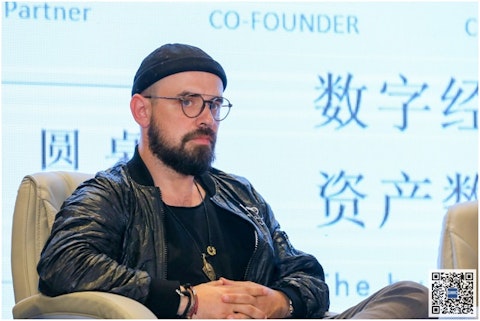Formation Finance is an up-and-coming DeFi protocol aiming to use an innovation known as “cross-chain risk parity smart farming 2.0.” It’s designed to smooth and streamline the currently clunky user experience in DeFi while reducing overall risk exposure. Formation uses algorithms to select the optimal yield farming strategies tailored to a user’s risk tolerance, leveraging a vast range of assets across various blockchain platforms, including Ethereum, BSC, Polygon, and more.
Formation recently closed a funding round worth $3.3 million, which attracted investment from VCs including Spark Capital, AU21, X21 Digital, and others, along with interest from blockchain operators including Bancor, Huobi, and Polygon.
However, only days later, Formation announced via Twitter that it had refunded some investors – without going as far as naming which ones. In a lengthy thread, the project disclosed that it had used a series of metrics to score VCs by how much value they bring and made the decision not to work with those who scored low.
It was a bold move; however, Formation founder Krzysztof Gagacki is resolute in his view that more developers and entrepreneurs should feel empowered to be selective regarding their investors. We had the opportunity to catch up with him and discuss what happened in more detail.

Krzysztof Gagacki
Can you tell us about your journey so far? What led you to found Formation Finance?
After exiting and selling several companies I previously founded in the more traditional digital space, I became fully involved in the early DAO space from around 2016, when I built and launched an Ethereum-based DAO lottery system. You could say it was ahead of its time, as it already worked similarly to today’s DAO-based DeFi projects, in that it’s entirely decentralized with no owners. It ran on pools governed by smart contracts.
Despite being a very early experiment in the DAO space, it worked out well. Our initial code was used among many universities as a benchmark for DAO pools. I left the project after we had some backlash from government authorities that regulate lottery businesses.
Along with my partner Joshua Hong, we set up Fcash group in Hong Kong, exploring the way for seamless benefits of DAO-based finance. The DeFi summer of 2020 led us to develop the Formation Fi concept. We wanted to flatten the learning curve of DeFi to help onboard less tech-savvy people and institutions to trustless open finance systems.
Having undergone a funding round in which Formation Finance raised an impressive $3.3 million from a group of investors, you later went on the record to say that you had decided to “refund” some investors. Can you tell us what led to the decision?
For context, we were very heavily oversubscribed. At one point, we felt we had too much money on the table and decided to limit the round only to those investors that could and would provide legitimate value to our ecosystem. We developed a fair scoring metric to assess the investors, and based on the outcome of the scoring, we decided to refund some of them. With the luxury of choosing, we wanted to keep our group of investors to those who bring real value to Formation, its ecosystem, and its users.
And why did you decide to go public about it?
We decided to go public to let other projects know that they have a right to care about who they bring on board as investors, as this leads to the product’s success or future development. If your core idea is strong and there is a development team to support it, you can and should be picky about who you take money from. Don’t just simply follow the money.
At Formation, we’re sending a strong message about our long-term commitment to the project by locking team tokens for four years. Investor tokens are also locked for a year, which prevents them from being able to dump tokens at the expense of loyal users. Therefore, the investor decision is simply part of our broader commitment to building a sustainable open financial ecosystem, not a short-term money-making scheme.
We do also feel that, in a community-driven market, the rules for VC investing should be clear. The community trusts projects to onboard the right people, whether that’s team members, external contractors, or investors. Everyone is supposed to be bringing value to the ecosystem.
Did you have prior experience working with VCs before founding Formation? Are these issues you describe something that you’ve seen before?
I do have some experience with these issues in the past, and that has led to me not taking VC funding on other projects. My co-founder Joshua Hong raised over $100M for his previous ventures as a tech entrepreneur and a venture investor. We collectively understand how the game works and how it should be played in a more democratized manner.
Formation’s “7 Guiding Principles” blog post talks about the shift towards second-generation yield farming, and DeFi entering a new phase of maturity etc. To what extent do you think the lack of maturity plays into the issues you’ve seen with VC investors? Are these issues simply reflective of where DeFi is at as a space, or is it a more endemic problem?
I don’t think the challenges that startups have with VCs have anything to do with DeFi or its maturity. This is how the VC game has always been – some are great, some are good, some aren’t. In general, I still think crypto-oriented VCs are better at fulfilling their roles than non-crypto ones. I see this shift happening already where VCs are leaning towards building rather than lazy, hands-off investing.
Formation Fi has been instrumental in forming a “Founder’s Club” for DeFi project founders. Can you share some more information about the club? What’s the purpose, and who is on board?
Founder’s Club is a movement initiated by Josh and myself, rather than a fully formalized club. We both have had experiences working closely with VCs before entering the blockchain space and saw how ‘money managers’ can spoil the mindset of a startup founder who should essentially be a ‘builder.’
Being a builder means you are obsessed with the quality of your craftsmanship. You are less ‘transactional’ (or short-term focused) and more ‘strategic’ (or long-term focused) because there is an end-product with your name on it. A builder also finds more meaning in life from the process of turning a mere customer into an enthusiastic fan than exiting your business. We intend to prioritize the mindset and attitude of a builder over that of a moneymaker so that we don’t lose focus on why we do what we do.
What would be your top tips for new founders before talking to VCs or going into their first funding round?
Ultimately, we want to work with founders we can learn from and share ideas closely because we are builders. We also love founders who were the underdogs and misfits when they started out at the beginning of their entrepreneurial journey: someone who hasn’t taken no for an answer and has demonstrated that they’re a fearless self-starter with a singular focus to prove their pundits wrong. We also enjoy working with trail-blazers who chart a new course in a sector that needs a clearer vision for a better customer experience.
What’s next for Formation Fi?
The DNA of Formation FI is encoded to be a full-fledged open financial services provider. We’re aiming big – we very much envision ourselves to be the JPMorgan or Goldman Sachs of DeFi. This is why we focus on creating an outstanding user experience and building long-term relationships with our users and partners in the ecosystem.
So, after Risk Parity as our Chapter 1, there will be more ‘chapters’ unveiled to meet the growing needs for DeFi-based financial services. If you can imagine a new world of global financial systems that are more open, decentralized, and community-driven, then the possibilities are endless. Formation FI will be one of the key leaders in this brave new world of open finance run by bots, algorithms, and DAOs.
How do you see the future of DeFi panning out over the next year? Any projects or upcoming developments that you believe are currently sleeping giants?
DeFi will go mainstream once the sector irons out its few critical kinks on security, usability, and gas fees. Today, DeFi is in the mode of constructing the necessary infrastructure so that future applications can be built on top. Without this solid ‘plumbing’ work complete, no developer can build scalable end-user applications that can scale safely.
I think this phase will take another 2-3 years to complete, and after that, we will start to see some absolutely amazing consumer apps. Just about any imaginable internet applications we have witnessed and enjoyed will be running on top of Web3. All financial services that we are accustomed to experience today can and should run on the current DeFi infrastructure after this phase.
Regarding sleeping giants, I believe they are probably still being conceived, and some of them are probably more like infants right now. Personally, I see huge opportunities in a new emerging space where NFT meets DeFi with the creative use of ERC 1155 contract standards. And, Formation FI will be a player in that space after a successful launch of Risk Parity.




